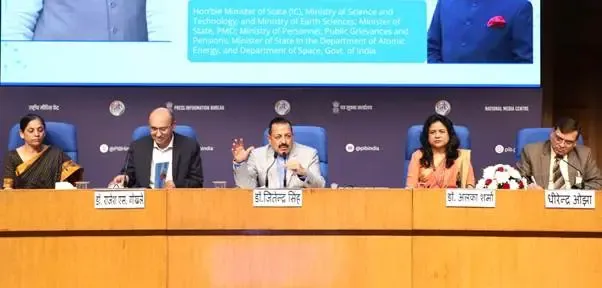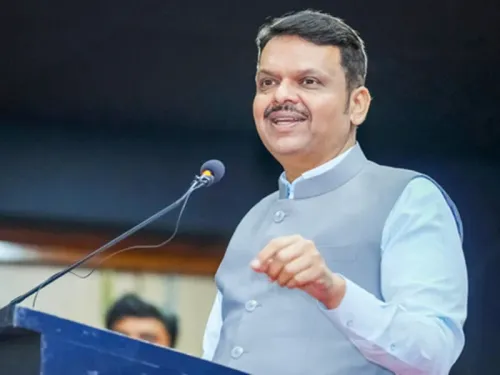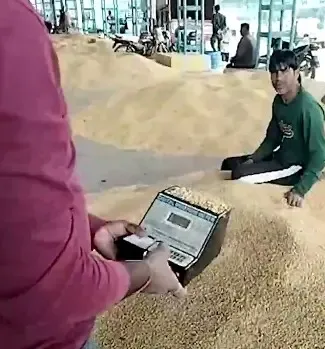Dr. Jitendra Singh Introduces Innovative Anti-Pesticide Bodysuit to Protect Farmers

New Delhi, Dec 18 (NationPress) Union Minister of State (Independent Charge) for Earth Sciences Dr. Jitendra Singh has introduced Kisan Kavach, an innovative anti-pesticide bodysuit aimed at protecting farmers from the harmful consequences of pesticide exposure.
This indigenous development signifies a major leap forward in ensuring farmer safety.
The bodysuit, created by BRIC-inStem in Bengaluru, in partnership with Sepio Health, provides defense against pesticide-induced toxicity, which frequently results in serious health issues. Continuous exposure to pesticides can lead to respiratory problems, vision impairment, and, in severe cases, fatality.
“Kisan Kavach is not merely a product but a commitment to our farmers to protect their health while they sustain the nation's food supply,” Singh remarked.
The bodysuit is both washable and reusable, with a lifespan of up to a year. It utilizes cutting-edge fabric technology to neutralize harmful pesticides upon contact, ensuring the safety of farmers.
Singh also praised the contributions of the Department of Biotechnology (DBT) and BRIC-inStem for leading this initiative and providing an innovation centered on societal needs.
“In the past decade, the number of biotech startups in India has grown to over 8,500, setting us on a path towards a $300 billion bio-economy. With projects like Kisan Kavach, we are not just protecting our farmers but also moving towards climate-resilient agriculture and sustainable growth,” he added.
The manufacturing process, detailed in the journal Nature Communications, demonstrates that it involves the covalent attachment of a nucleophile onto cotton fabric, crafted as “Kisan Kavach.”
This fabric can deactivate pesticides on contact through nucleophilic-mediated hydrolysis, effectively preventing pesticide-induced toxicity and mortality.
Currently, the bodysuit is priced at Rs 4,000, but Singh assured that as production increases, the suit will become more affordable, making it accessible to a larger number of farmers across the country.
“This groundbreaking technology not only meets an urgent need but also highlights India’s ability to innovate for its citizens,” he concluded.









